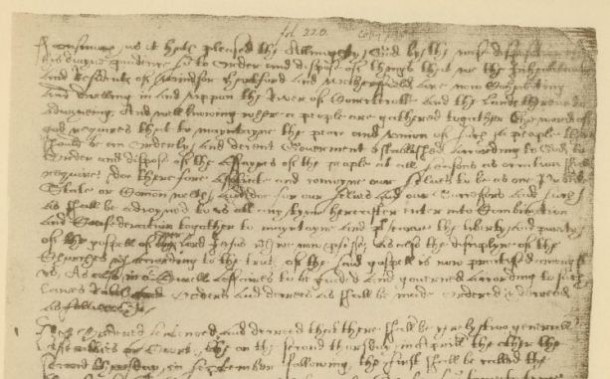1.) What concepts are included in the Mayflower Compact?
Within the Mayflower Compact, the primary idea represented is that with approval from both their King (James) and God, they are permitted to travel and settle in a portion of the new world. Additionally, the countries which are represented within the colony are also represented on the compact, signifying a somewhat joint venture between the nations of England, France, Ireland, and later Scotland.
2.) How does the Mayflower Compact reflect an attachment to both the "Old" and "New" worlds?
The Mayflower Compact reflects ties to both world old and new in the sense that while they are being permitted distance from their mother country, they still recognize the power of King James and their Anglican religion. Despite this, colonists mention an equal set of laws, constitution, and general government, a contrast from the Monarchy of European nations at the time.
3.) How did the fundamental orders of Connecticut differ from the Mayflower Compact?
The Fundamental Orders of Connecticut differ from the Mayflower Compact in the sense that while the former was an extensive outline of a newly formed pseudo-government through the unification of multiple communities, the Mayflower compact was merely a hastily made declaration of the fact that the applicable colonists were permitted by their king and god to colonize this land and have it as their own. Additionally, the Mayflower compact further signified the formal arrival of their group, while the fundamental orders of Connecticut was made by preexisting communities.
4.) What prompted the colonists of Connecticut to take this approach to government, i.e.: use of a written constitution?
The colonists of Connecticut took the approach to use a written constitution founded on the belief that provide liberty and freedom in the name of their religion it would be necessary to form a government founded on the fact that power should be founded within the people and to prevent abuse of power.
5.) In what significant way(s) does the Fundamental Orders reflect a fear of and safeguard against the usurping of power by one person or a chosen few?
The Fundamental Orders reflect distribution of power with articles detailing policies such as: general elections, term limits, and ample voting by the general court on almost every governmental matter. These demonstrate the prior discontent that colonists had facing the aristocracies and monarchies of their era.
Mayflower Compact

Fundamental Orders of Connecticut

Ordinance of Secession
Comments
Post a Comment